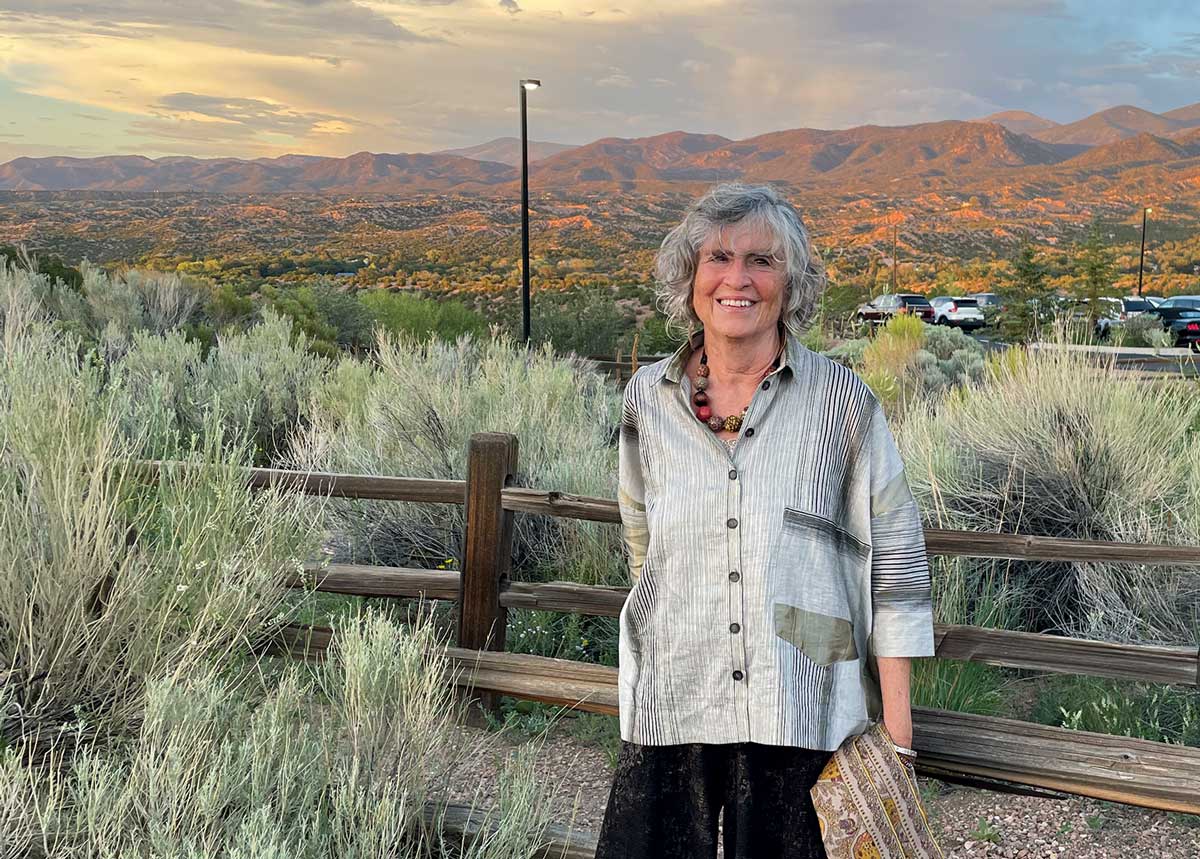
a holistic approach to health care
Helene Silverblatt ’70, a professor of psychiatry and behavioral sciences at the University of New Mexico, looks at health care holistically.
“I’ve had a wide-ranging career — but I always had this aim of linking up all these different aspects of health care,” Silverblatt says. “You can’t take people out of the context of their families, and you can’t take families out of the context of the communities they’re in, and certainly in terms of mental health care, you can’t take that out of the context of state or federal funding.”
At UNM, Silverblatt directs the Office for Community Faculty, working with clinical providers throughout the state who train medical and health professional students. She also serves as director of UNM’s federally funded Area Health Education Center. That organization aims to build a more diverse workforce for New Mexico’s rural and otherwise underserved communities through youth outreach and by facilitating clinical training opportunities in rural areas for health professional students. For more than 25 years, Silverblatt directed UNM’s rural psychiatry residency program, which she co-founded.
Silverblatt has a passion for bringing together primary care and mental and behavioral health services.
In her clinical work she practices with interdisciplinary teams of providers as part of UNM’s Transdisciplinary Evaluation and Support Clinic to help adults with developmental disabilities access appropriate health care.
“Most of the time, I feel how lucky I am to have such a diverse job,” she says. She also developed a course at UNM, on community psychiatry, and supervises residents providing individual psychotherapy.
“From training high school students to feel comfortable going to university when no one in their family did, to talking to Congressional representatives about health care, or meeting with individuals and their families in a therapeutic relationship, it’s a lot of different things. They are all different aspects of health care … It’s important to always think about all those dynamics.”
Silverblatt, who studied anthropology at Swarthmore, is also a Swarthmore sibling and a Swarthmore parent. Her twin sister, Irene Silverblatt ’70, is a professor emerita of cultural anthropology at Duke University. Together the two coedited a book, Harvest of Blossoms: Poems from a Life Cut Short, featuring the translated poems of their cousin, Selma Meerbaum-Eisinger, who was born in Czernowitz, Romania (now Chernivtsi, Ukraine) and killed at age 18 in the Holocaust. It was published by Northwestern University Press in 2008.
“They’re beautiful poems, considering how young she was when she wrote them,” Silverblatt says.
Silverblatt’s two sons, Elan Silverblatt-Buser ’12 and Aaron, run an organic farm, Silver Leaf Farms, in Corrales, N.M. Her daughter, Sarah, lives in Paris and is dancer and choreographer with the Yoann Bourgeois and François Veyrunes contemporary dance companies.
The COVID-19 related postponement of the Silverblatt sisters’ 50-year reunion meant their 50-year celebration coincided with Elan’s 10-year reunion. “Irene and I got to dance with his friends,” Silverblatt says. “It was so much fun. We had a blast.”